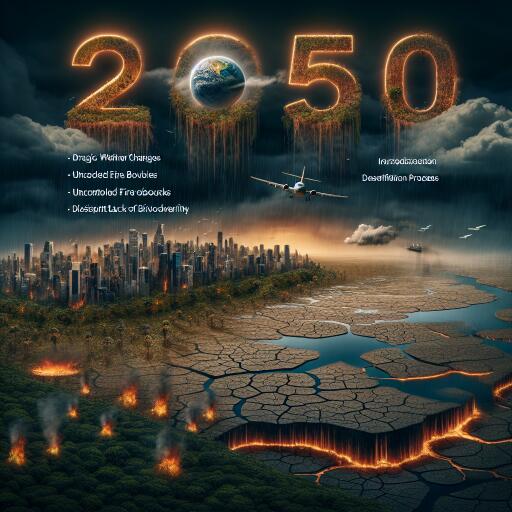
Amazon Rainforest Could Reach Tipping Point, Collapse by 2050 [Study]
The Amazon Rainforest, recognized as the planet’s largest tropical rainforest, is currently teetering on the edge of a catastrophic collapse. A groundbreaking study reveals this natural wonder, which holds unparalleled biodiversity and plays a crucial role in global climate regulation, could be irreversibly damaged within the next thirty years.
Unveiling distressing findings, the study exposes nearly half of this vast rainforest to an imminent threat of degradation. A culmination of climate change impacts, including relentless deforestation, escalating global temperatures, and other ecological pressures, is pushing the Amazon towards a dire threshold. Analyzing data concerning water stress from five primary sources and key indicators that risk triggering systemic failure, researchers discovered a startling revelation. About 10% of the Amazon is highly prone to transition into degraded landscapes, characterized by diminished tree coverage or evolving into grasslands. An additional 47%, predominantly comprised of regions yet to be extensively explored and more sensitive to severe droughts like the one currently experienced, is on the brink of collapse by the mid-21st century.
The study emphasizes that central and remote areas of the Amazon are becoming increasingly vulnerable to a series of adverse environmental events. Major droughts, fires, elevated temperatures, and continuing deforestation are collectively pushing the rainforest beyond critical ecological thresholds. Crossing these tipping points could lead to widespread forest collapse, exerting cascading effects on regional and possibly global climate patterns.
“Crossing this tipping point means losing control over the forest’s future state,” warns the study’s lead researcher, an ecologist from Brazil. “The forest would essentially self-destruct.” This comprehensive peer-reviewed study marks a first in simultaneously evaluating multiple threats to the rainforest. It builds upon previous research that separately assessed the impact of deforestation and climate change.
“Our findings suggest that the tipping point is much closer than previously anticipated,” noted another contributing scientist, an esteemed Brazilian climate expert devoted to studying the long-term effects of deforestation and climate change on forest ecosystems.
By superimposing data on temperature, rainfall patterns, and forest integrity, the study pinpointed areas most vulnerable to ecological transformation. Factors such as existing roads and legal protections were also considered, assessing how they might influence the stability of various forest segments.
While pinpointing an exact timeline for the rainforest’s potential collapse remains challenging, the research team underlined the urgency, indicating that this tipping point is being approached at an alarming rate.
Spanning approximately 2,300,000 square miles across South America’s northern region, the Amazon Rainforest is vital to our planet. It harbors a significant fraction of Earth’s biodiversity, including 10% of known wildlife species in just 1% of the land area. This biological treasure trove, mostly concentrated in Brazil, is vital for local and global populations, offering essential resources such as medicine, sustenance, and timber. Beyond its direct utility to humanity, the rainforest plays a pivotal role in carbon sequestration, housing an estimated 150-200 billion tons of carbon dioxide. Moreover, its dense canopy contributes enormously to the global water and carbon cycles, releasing a staggering 20 billion tonnes of water vapor into the atmosphere daily, thereby influencing climate patterns far beyond its immediate surroundings.
As the scientific community warns of the impending threats to the Amazon Rainforest, the study presents a compelling case for immediate global action. Protecting and preserving this ecological marvel is not just a regional responsibility but a global imperative. Addressing the root causes of its degradation, from halting deforestation to mitigating climate change impacts, is crucial in averting an ecological catastrophe that could resonate across the planet.





Leave a Reply